Our intention was to stay in Sutera Harbour for a few days, prepare for the trip to the Philippines and continue travelling north to the island of Palawan. Things, as they say, didn’t quite go to plan, however. We spent Wednesday March 7th sticking to our schedule, which was mainly shopping for drinks, fresh produce and other essentials for the two-week passage. The morning was taken up with a visit to a supermarket known for its variety of Western products and selection of cheeses. In the afternoon, we visited the market in KK’s centre so that Paul could buy some fresh fish, and stopped for a drink in one of the waterside bars overlooking the bay, noting that it would be the last time we’d see it for several years – if at all. From there we went to Imago Mall for a bite to eat and a final shop in the supermarket there, and took a taxi back to the boat to stow it all away.
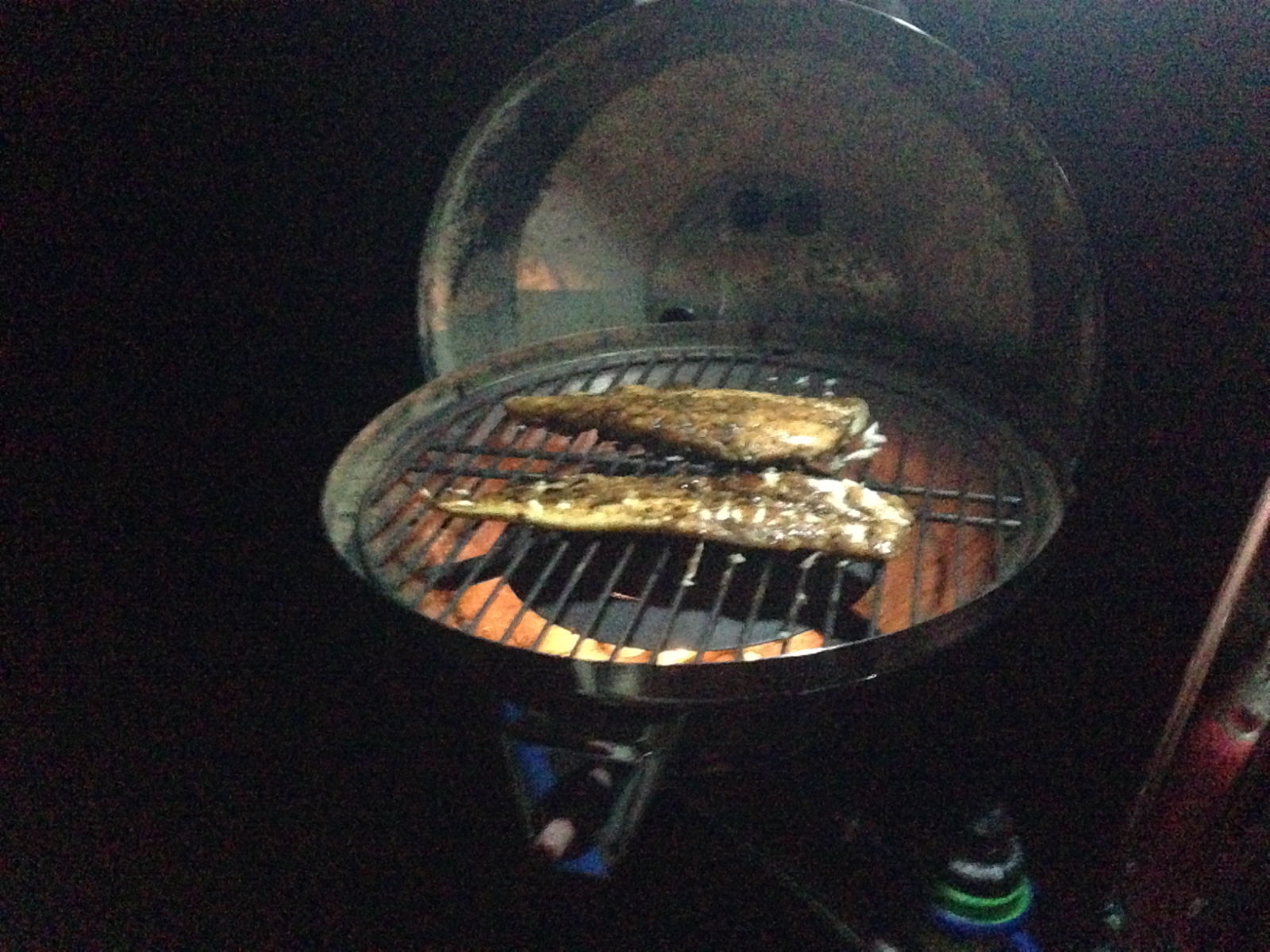
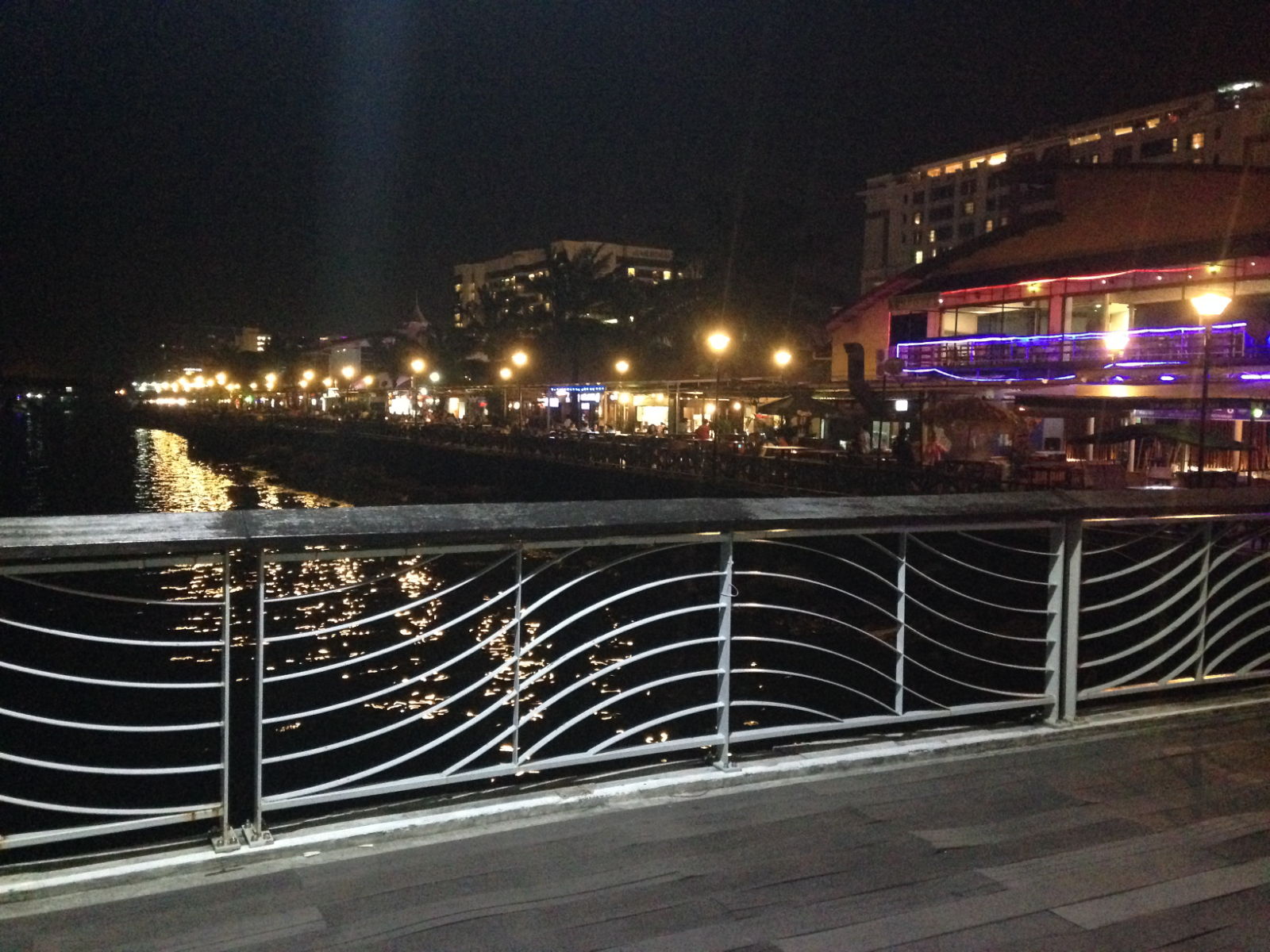
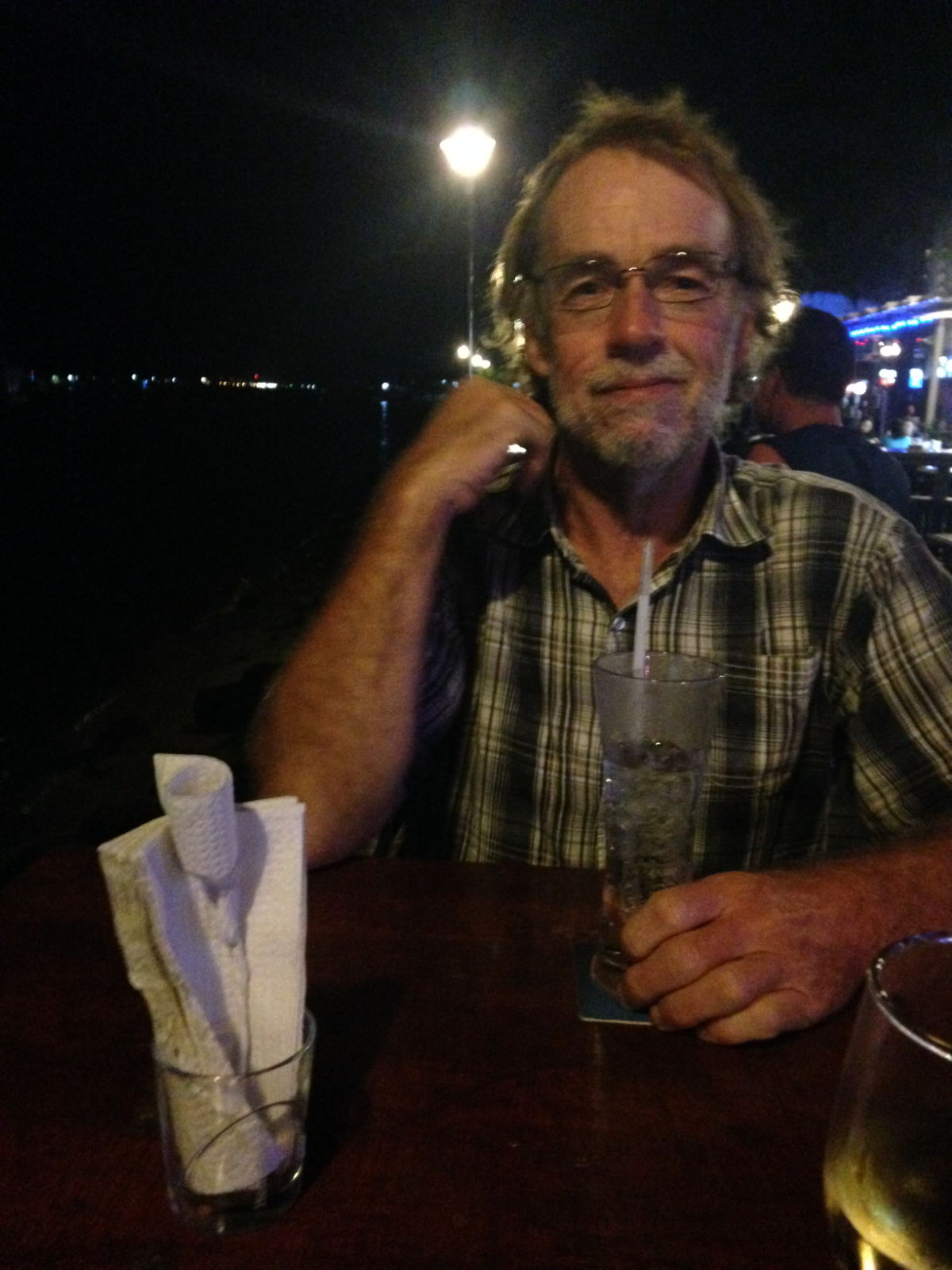
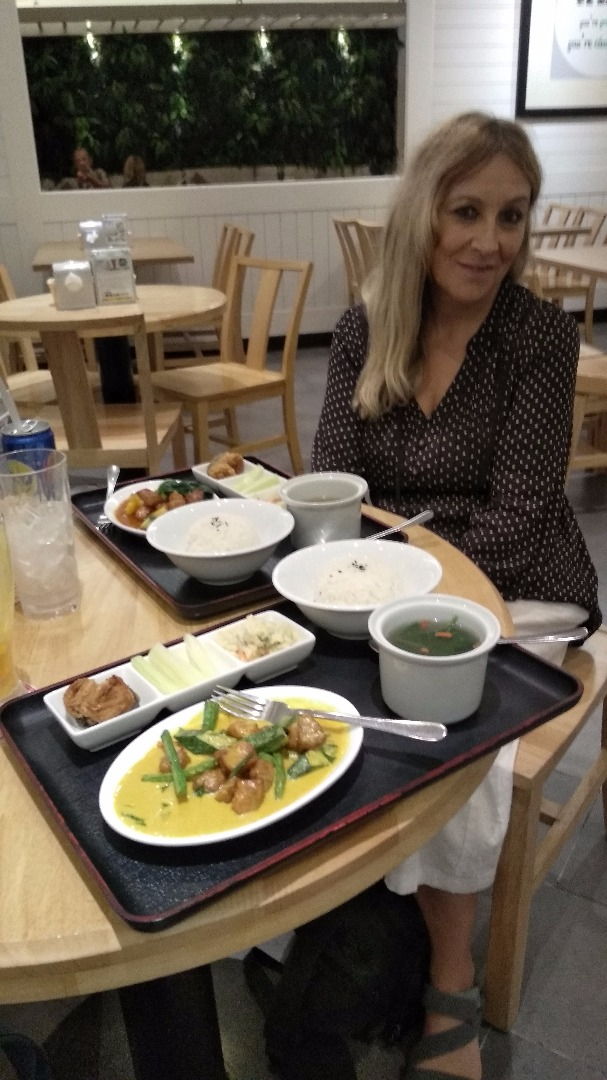
The morning of our departure got off to a promising start. Provisions were stowed, the water and fuel tanks were filled, engine checks done and the passage plan was all set up in the cockpit on the iPad. I reached into the fridge, to get some spread for my toast and remarked that it didn’t feel as cold as usual. Paul did some checks and confirmed that the fridge had stopped working. A more detailed examination revealed that it wasn’t going to be a quick fix, and it looked as though we would have to postpone leaving. We quickly dispatched our frozen goods to Ian and Marilyn’s boat where they kindly agreed to store it for us. The rest would be fine for a while as it was still cold enough inside the fridge, but there was quite a lot of food in there for a two-week passage. We also had the added stress of having checked out and without knowing how long the problem would take to fix, weren’t sure whether we should check back in again. Word spread about our plight and we had several offers of help and advice from neighbours and marina staff. Paul spent most of the day researching, emailing and contacting various firms and distributors about obtaining a new controller for the fridge to replace the faulty one. By the evening it had been ordered from a place in Devon to be delivered here by DHL on Monday. We had also acquired a huge bag of ice to help preserve the contents of the fridge, so things were looking up and we decided a few days’ delay wasn’t such a big deal . Paul took advantage of the extra time to take his water-logged iPhone to a kiosk in Imago Mall. A chap there had offered to fix it over the course of a few days but at the time we had planned to be leaving the following day. On the walk back, we discussed how we might spend the unplanned extended weekend we’d be having in KK…cycle rides maybe, swimming in the resort’s pools, a bit of bowling perhaps? We did none of those things as it turned out. The next ten days would prove to be a lot more stressful than sorting out a broken fridge.
We were both up early on Friday 9th March. Paul had begun to feel ill during the night. He complained of feeling chilled, was shivering uncontrollably and said he was aching all over. He’d also been sweating a lot and had a headache. He’s had random attacks like this before so he took some paracetamol which usually helps, but he didn’t feel much better by morning. He decided this might be an opportune time for me to practise taking and recording vital signs with the medical equipment we have on board. I retrieved the thermometer and a blood pressure and pulse monitoring device and following the instructions, recorded both of our results so that we could compare and contrast. Although Paul’s pulse was normal, his temperature was quite high and his blood pressure was slightly low. He felt lethargic, too so we guessed a day or two taking it easy with regular doses of paracetamol and ibuprofen would sort it out. He dozed most of the day but whenever he woke he still felt rough, he was shivery and his temperature remained high. That night we made the mistake of looking up symptoms online and checking what to do when someone’s temperature doesn’t go down. The number of life-threatening diseases he could potentially have was staggering and scary. Malaria and dengue fever seemed the most likely, according to his symptoms and I kept thinking of his time in the volcanic mud pool on Tiga. Moreover, I had sat in the cockpit earlier that evening so as not to disturb his sleep and ended up with several mosquito bites of my own. We’d heard that incidents of dengue fever had been reported in the nearby stilted village and I thought how awful it would be if we both went down with it. It’s easy to imagine all sorts of worst case scenarios when someone falls ill in a tropical country, and I’m the first to admit that dealing with sick people is not one of my strong points.

Saturday dawned with no improvement after another night of uncontrollable shaking and sweating. I kept suggesting calling a doctor, and even got the list of numbers we’d been given by marina staff for emergencies but typically, Paul kept insisting it was a viral infection and it would pass in a day or two. By the afternoon, though, his temperature had risen to 40 and he’d become delirious; by which I mean he was awake but narrating a vivid dream about rivers of chocolate among other bizarre things. It’s so not like Paul to ramble on making no sense and I was seriously alarmed. I told him I was going to get Ian and Marilyn, thinking they might be able to persuade him to see a doctor. I knew he was bad when he didn’t protest, just nodded and said that would be fine. They both agreed with me he needed medical attention as soon as they saw him. Marilyn took his temperature and said he should get checked out at the hospital. I was very grateful for their help and advice. Sometimes you need the assurance and second opinion of a third party to confirm your instincts (as well as to convince a stubborn patient). Paul felt very dizzy and weak by the time we’d got ready and shut the boat up. Ian helped him up the steps to Sutera’s reception area where we called a Grab for the short distance to the Queen Elizabeth Hospital. There, we answered a few questions at the admissions desk and paid the £10 treatment fee for foreigners. We were told to take a seat and wait until someone called the number we’d been given. A thoughtful security guard, seeing us looking around at the array of led numbered displays and straining to hear the announcements over a tannoy, made sure we didn’t get confused or miss our turn by looking out for us and prompting us about when and where we had to go. We didn’t have long to wait before being called into the consultation/examination area and after asking a series of questions, the doctor recommended a blood test and rehydration treatment. We had left the boat in a bit of a hurry and hadn’t brought any spare clothing with us. Paul was still shivering and because it was icy cold in the air conditioned building, it wasn’t long before I was too. After his blood test, and while he was attached to a rehydration drip with my shawl around him I went outside for an hour or so to warm myself up and to find a shop to buy water. The diagnosis, when we eventually got it, was a viral infection (if Paul had said ‘I told you so’ at that point I would have been very tempted to slap him 😉 ). Anyway, we were relieved it wasn’t dengue or malaria…and I still blame that mud pool.
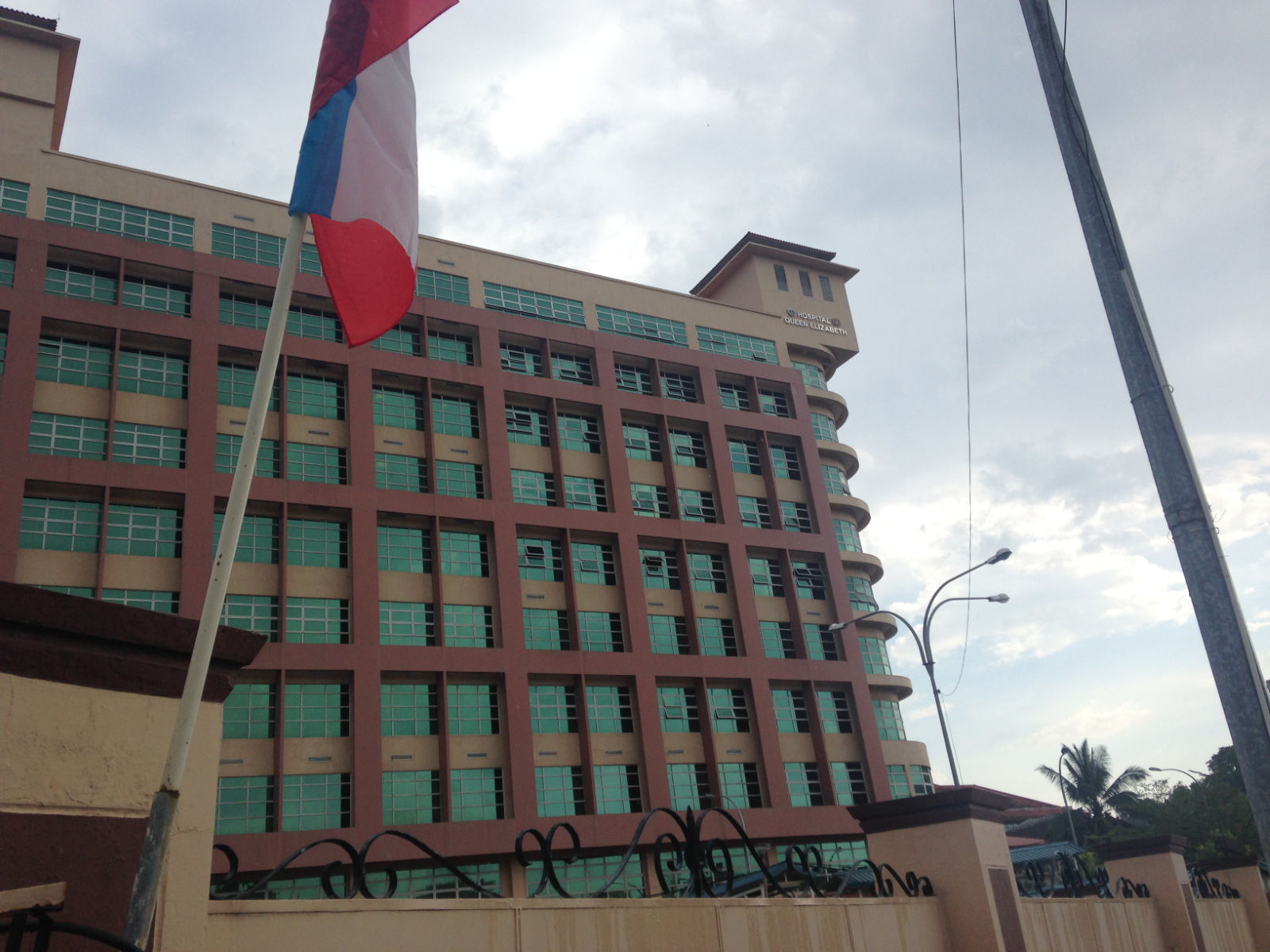
The next week or so was all about waiting for the worst of Paul’s fever to pass and to wait for the fridge part to be delivered. At times he felt better, and was even well enough to walk to the mall to collect his iPhone, which had been successfully repaired. To keep the fridge contents cold, we needed to keep buying huge bags of ice from a guy who supplies it to the resort. We’d obtained a number for him from reception but could never get hold of him that way. It was funny hearing Paul on his mobile asking ‘hello, is that the ice man?’ We had to resort to waiting until his van arrived at the car park and making the poor man jump by hailing him when he got out. The virus continued to lay Paul low, however, especially in the way it sapped his energy and he had to resort to just lying on the bunk in the cabin feeling weak and listless. Marilyn pointed out to me that it was strange the results of the blood test had ruled out dengue so quickly as it usually takes longer, which was something I hadn’t considered. It was clear that we wouldn’t be able to continue our travels for at least a few more days.
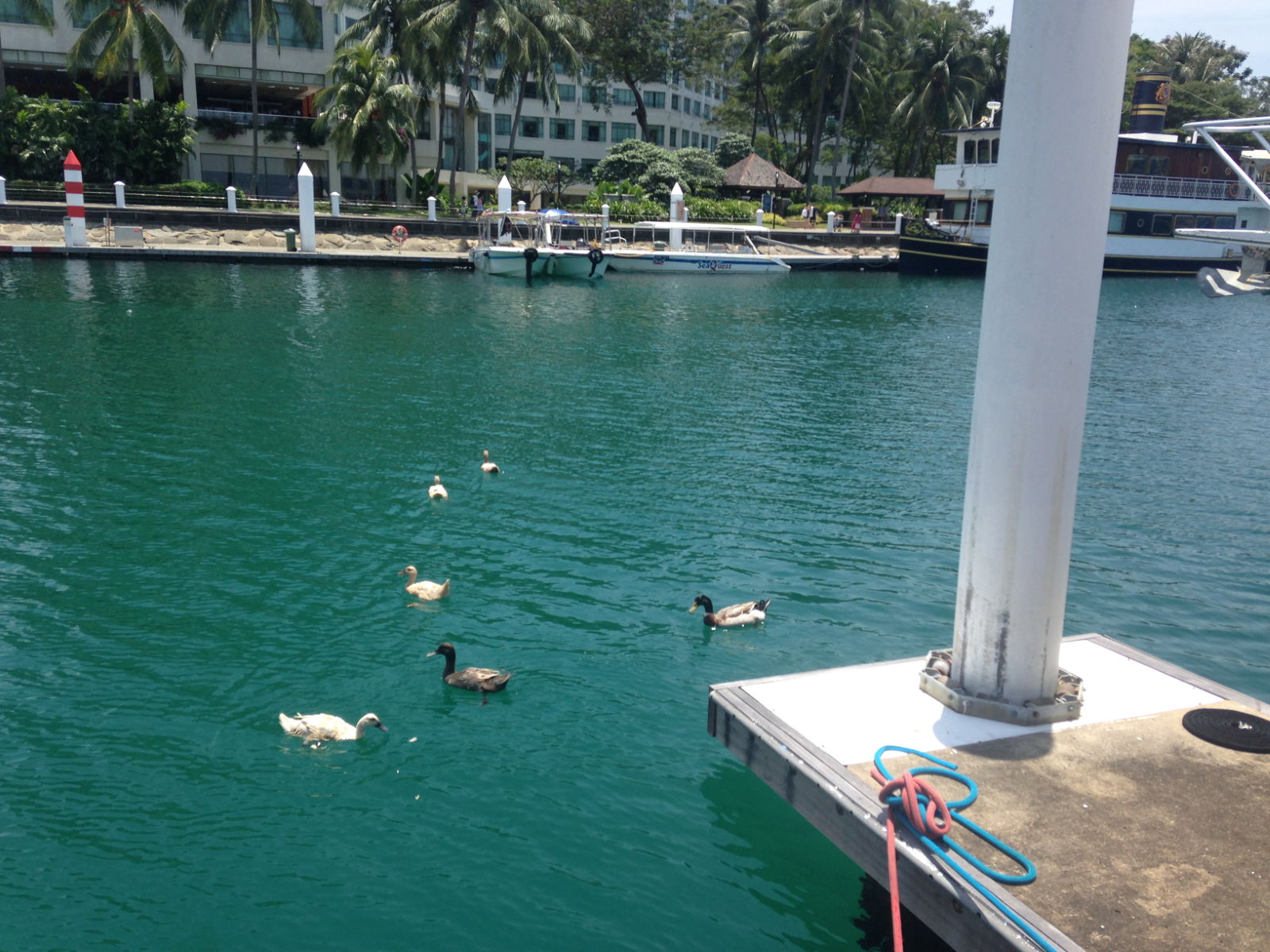
I took to walking to the mall on my own late in the afternoons to get drinking water and fresh bread while Paul rested in the cabin. Sometimes I stopped at a bar to read or people-watch and enjoy a change of scene. On Monday (12th) the fridge part was delivered and I helped to unload the contents of the locker in the cockpit so Paul could access the area to work on it. Thankfully it seemed to work but we left all the stuff out in case it needed more attention. It was frustrating for Paul to feel confined and restricted from doing anything by feeling so exhausted. The delay in leaving had already meant our time in The Philippines would be cut short, and there was concern we wouldn’t have enough time to get to Japan for the start of the rally we’re booked to take part in. All in all, what with the humidity and the illness, and the frustration of confinement it wasn’t the most content of atmospheres on Sister Midnight. I think my bedside manner could do with some refining and I couldn’t help smiling in amazement when I remembered how I had desperately wanted to be a nurse when I was about 14 – it would never have worked as I’m sure Paul will agree 😉
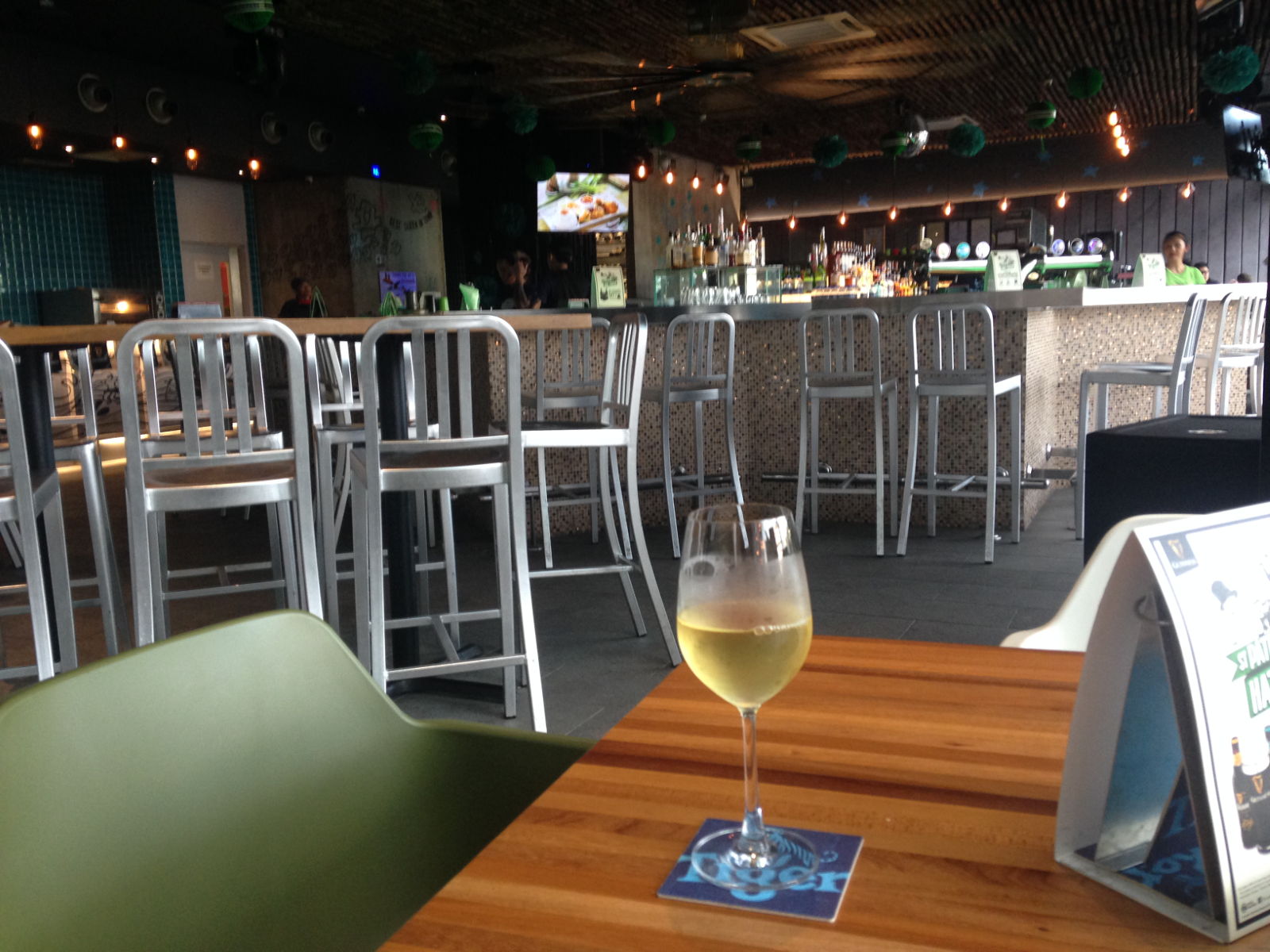
One afternoon, we met a Japanese lady called Mio who was looking for a boat to crew on as a means of getting back to Japan. She was quite an amazing woman who for six months of the year travelled around wherever she wanted to visit with earned money from collecting rare seaweed on a fishing boat in Japan. Her only rule was that she would not fly anywhere. She had heard we would be sailing to Japan and came to visit us. She understood that we weren’t looking for crew but thought it would be good to chat and to swap information. She very kindly brought us a papaya as a gift. We tried it later and I loved it but Paul’s description made me laugh. He said it resembled a melon, tasted of sock and reminded him of mice! I don’t think the delirium had returned ;). She gave us some useful tips about Japanese culture and food and we passed on some names who might be able to help her.
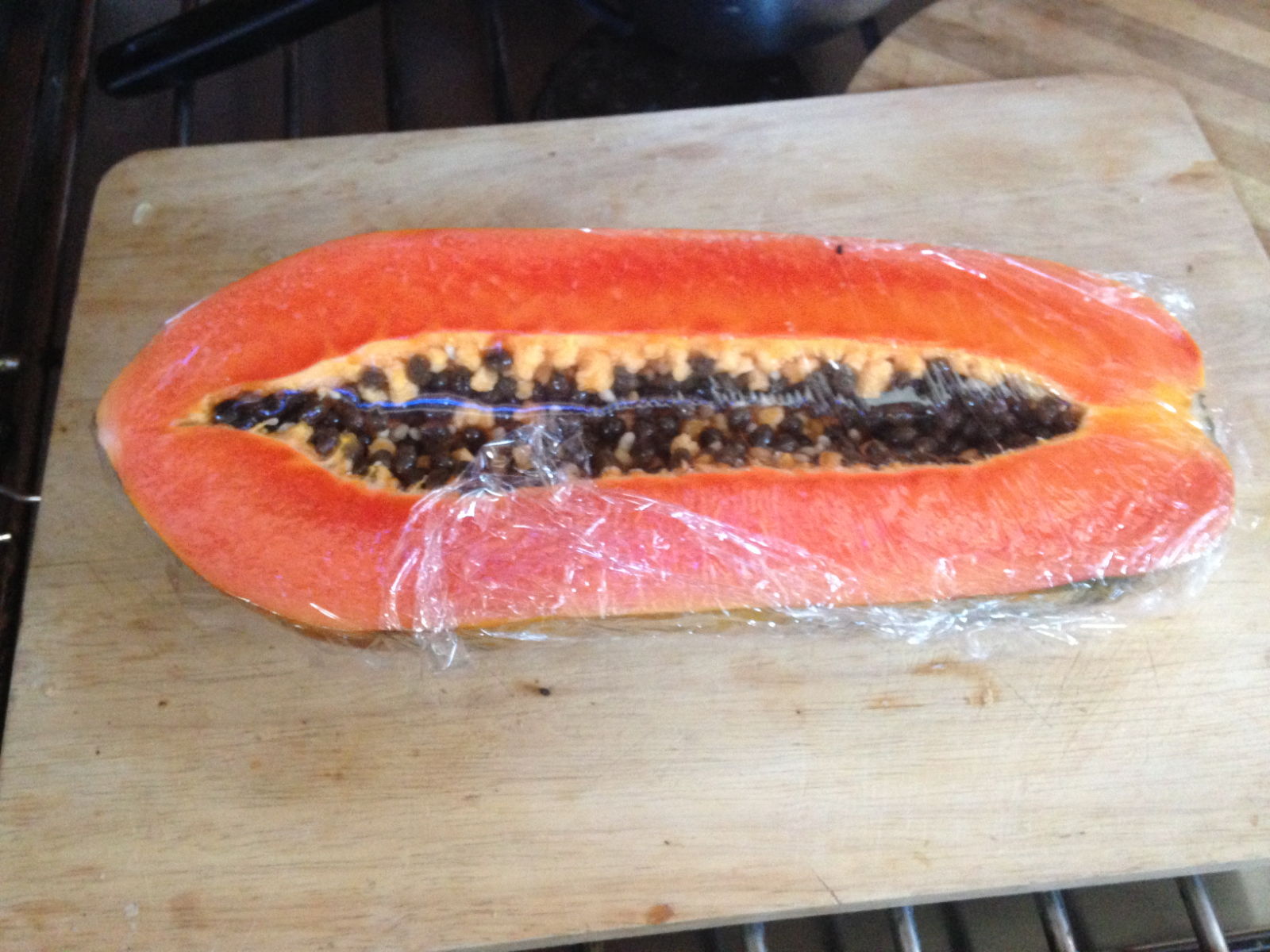
Paul was keen to get a haircut before we left so we got a taxi to a mall a bit further out of town which has a couple of ‘hair studios’ as well as two bookshops and a good supermarket. I bought a guide book on Japan while Paul had months of hair growth shorn away; he looked and felt much better for it. The excursion exhausted him though so we were definitely right to delay our departure. He ate a meal that evening for the first time in days so although the process was slow, he was definitely improving. Our extended stay allowed time for sorting and arranging the many maps and huge paper navigation charts that are on board. They are fascinating to look at, and selecting the ones that relevant for our imminent travels gave me a better perspective of Philippine locations, especially as I’m reading a book about prisoners of war who were held on Palawan Island during the Second World War.
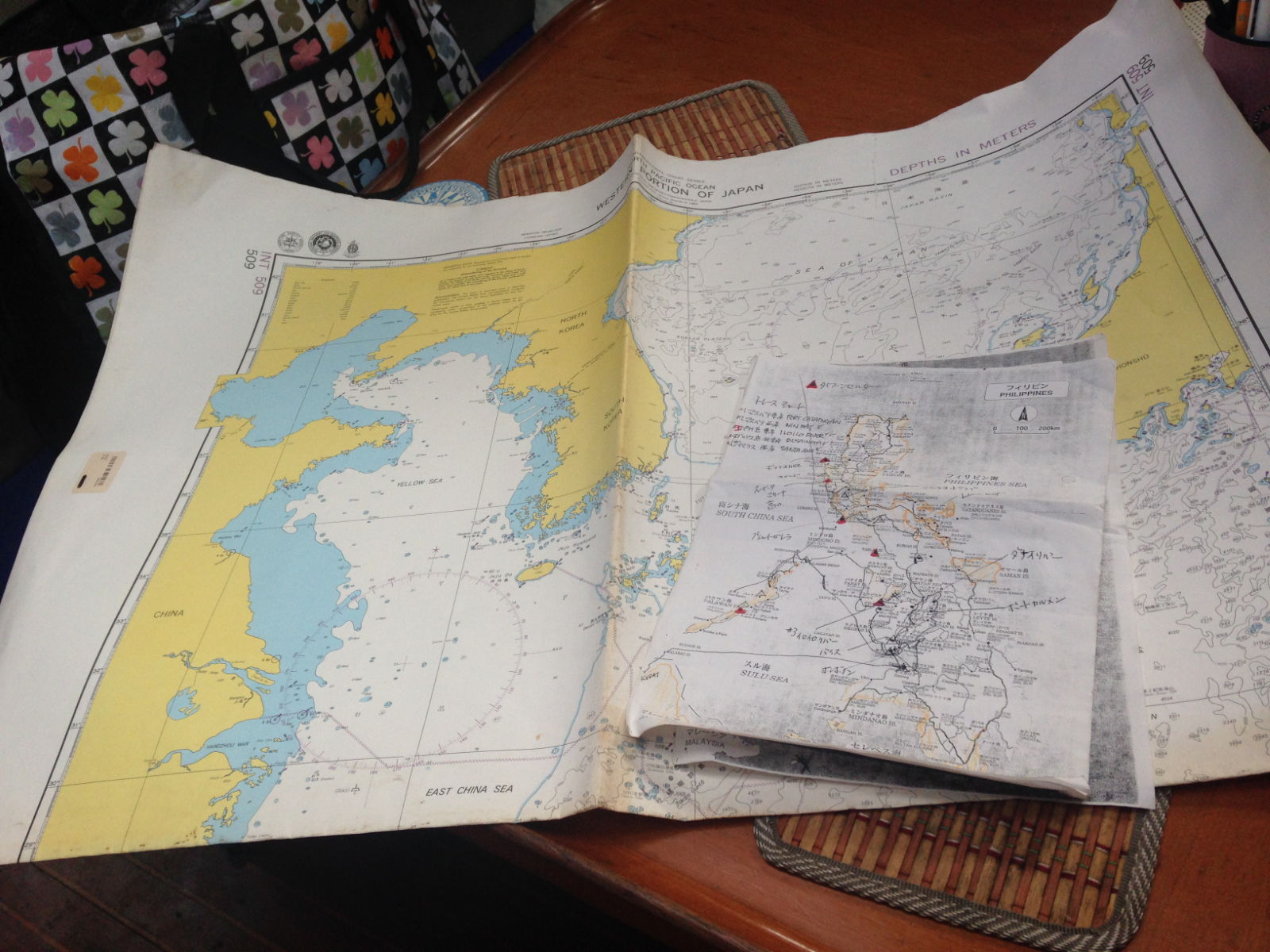
We hoped to leave sometime during the weekend of March 16th/17th, but Paul still felt like he hadn’t enough energy to do anything other than lie in the cabin and doze. Both of us are feeling quite desperate to move on now, and I was worried in case he was relapsing. By Sunday evening, however, after we’d taken a taxi to Giant Supermarket to get some provisions for the Pacific crossing later this year, Paul said we would leave in the morning as it was only a short hop to a place called Sambulong, and we could always turn back if he felt bad. We left at 10 30 on a blistering hot morning, waved off by Ian and Marilyn who we’ll be keeping in touch with. It was the right thing to do because it wasn’t long before the cool breeze invigorated both of us after being stuck in the heat with little change of scene for so long.
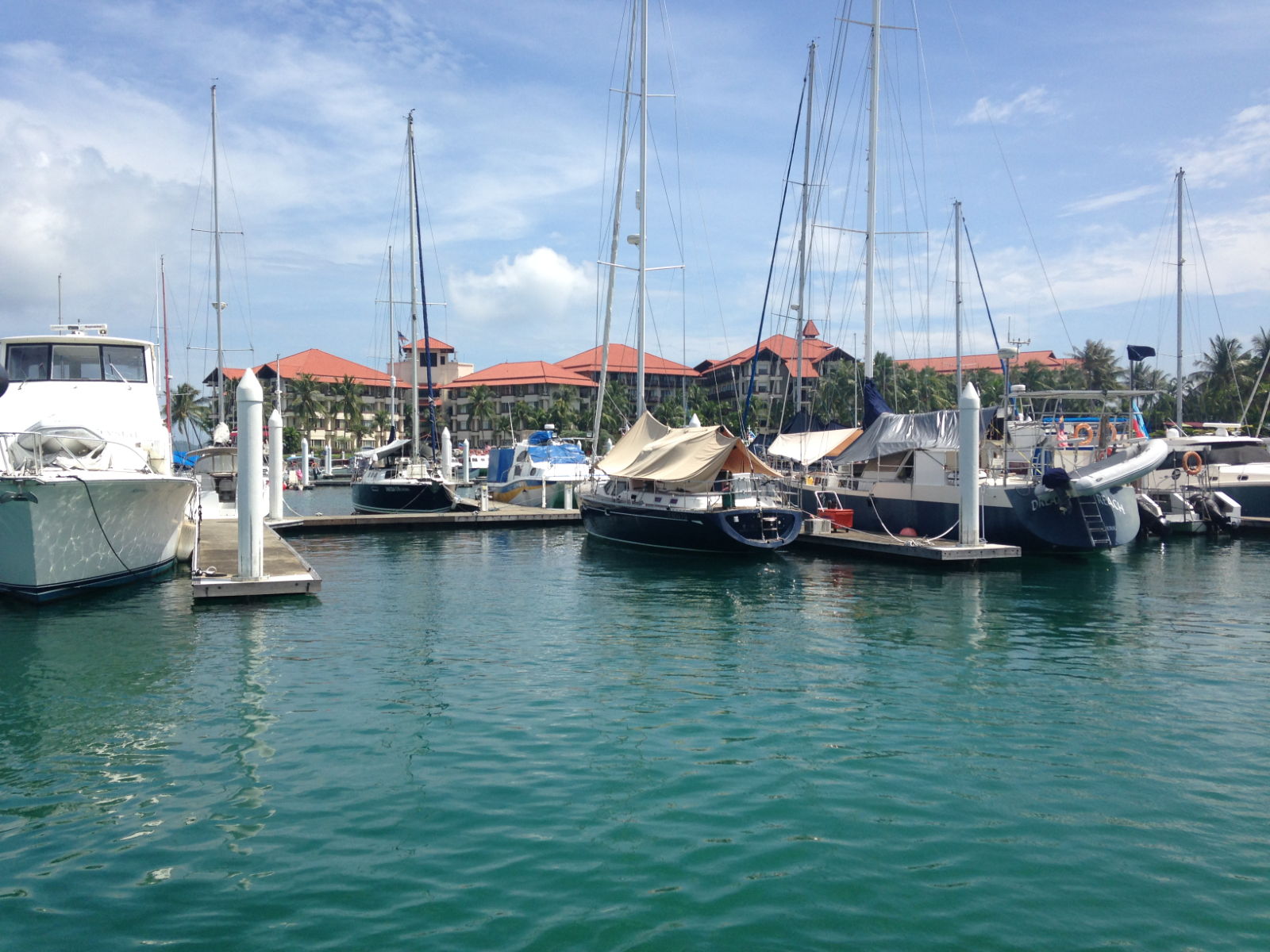
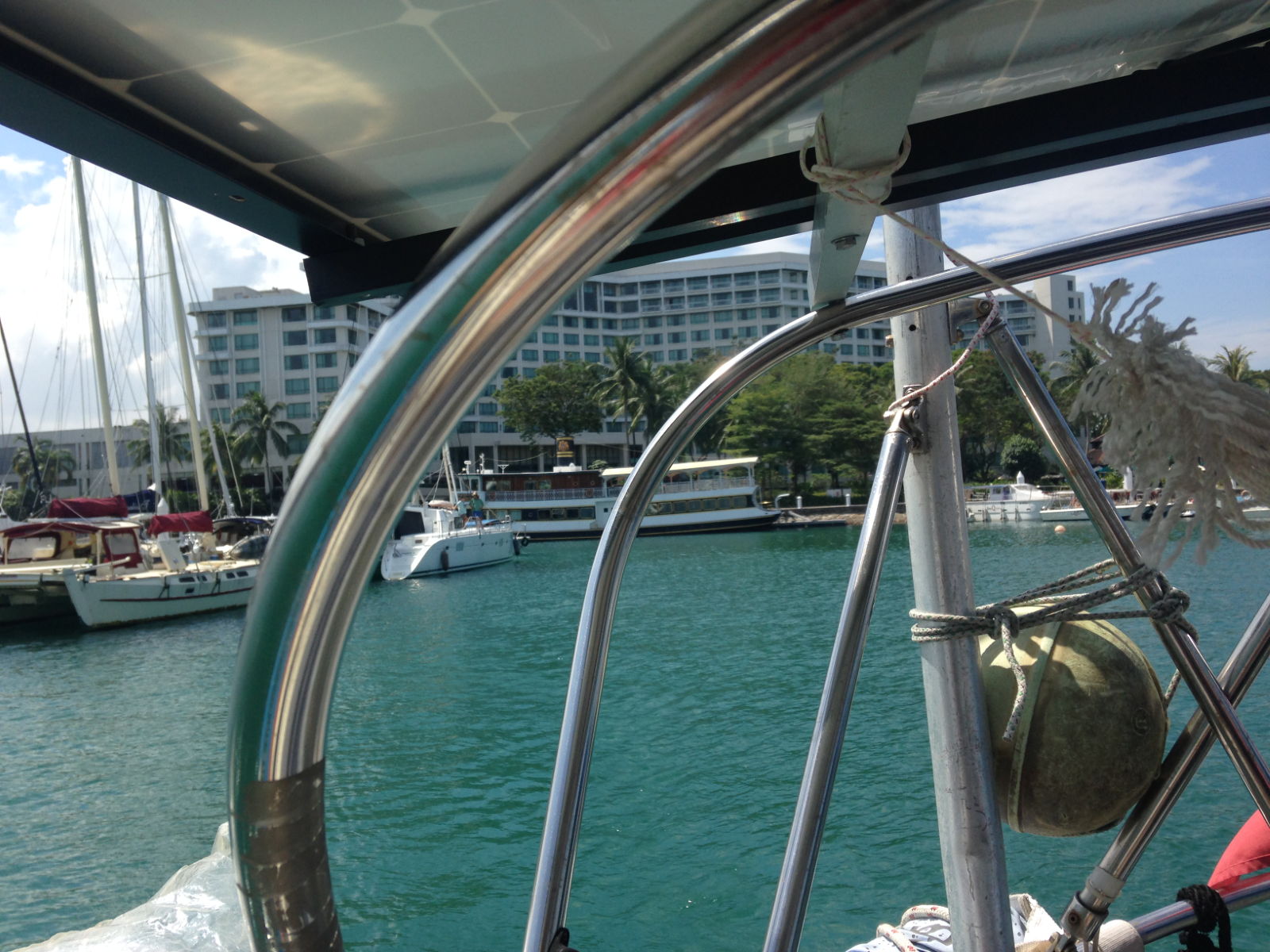
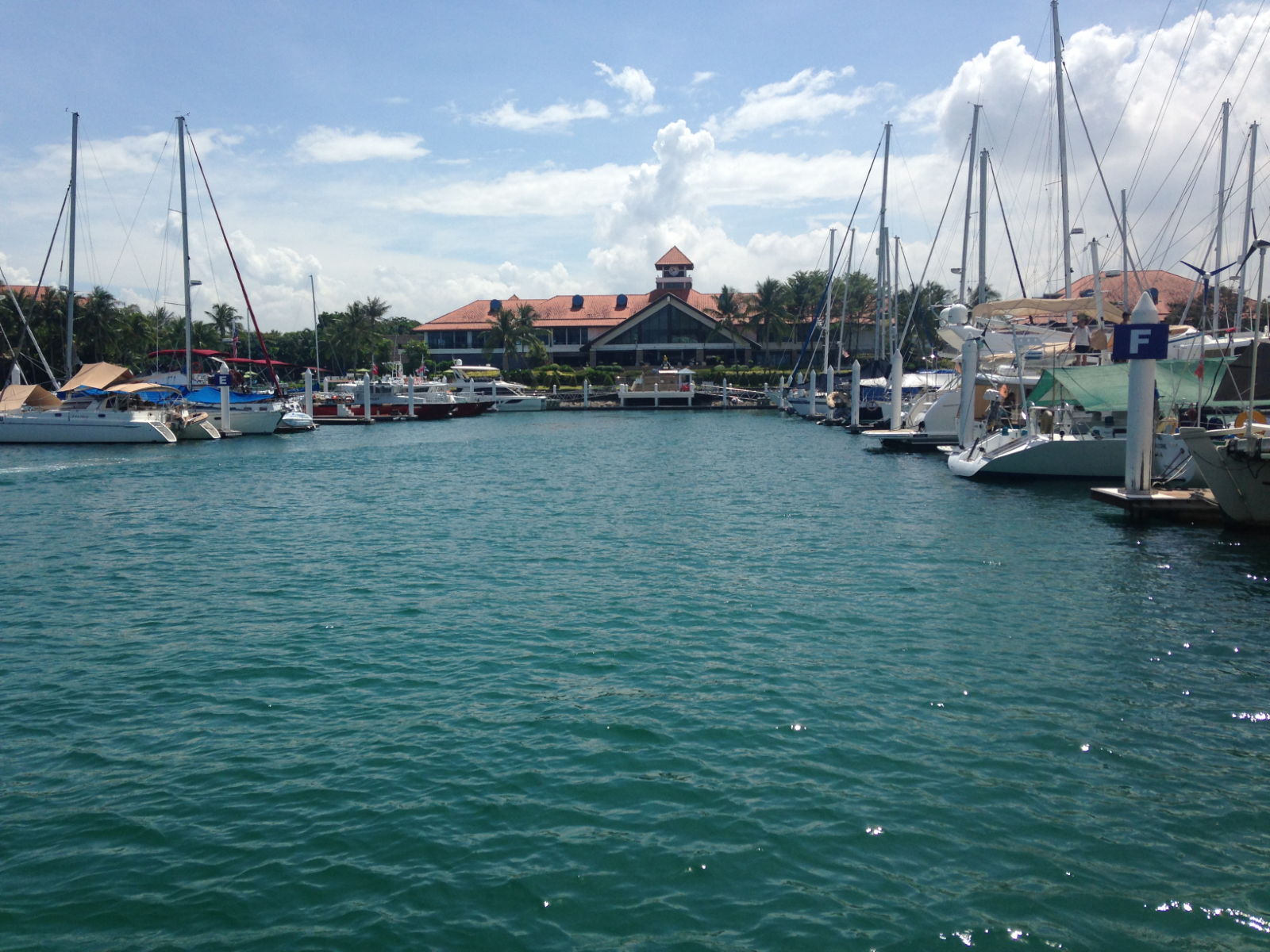
Psychologically, we felt we were moving on and making progress with the planned itinerary, even though our time in The Philippines would be shorter. The highlight of this short passage was the sight of the imposing Mount Kinabalu when it came into view. I had read all about it during our time in Sutera in December. It’s possible for novices to climb this mountain, and many do. Maybe if we had stayed longer and felt fitter, we would have attempted it. The descriptions of altitude sickness sounded a bit off putting but seem worth it for the spectacular scenes of sunrise visible from the summit. We anchored at 6pm near some FADS (fishing aggregation devices), which are best described as large wooden platforms for fisherman. They use them as a base to fish from, and they have facilities for making drinks, provide shelter from the elements and even have a generator for lights. It looked quite cosy from our position near them when it got dark, and we could hear the men laughing and chatting during the night.
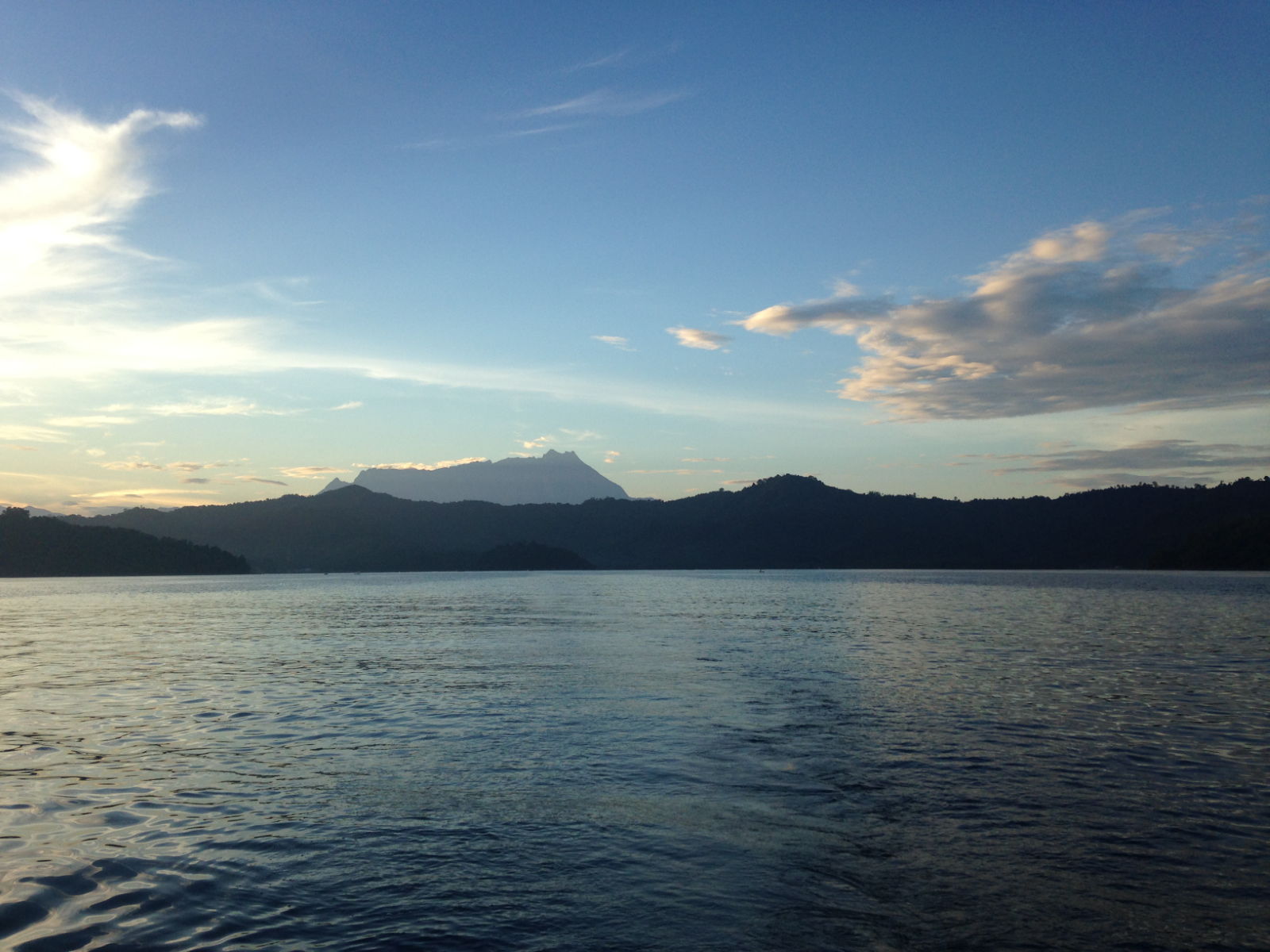
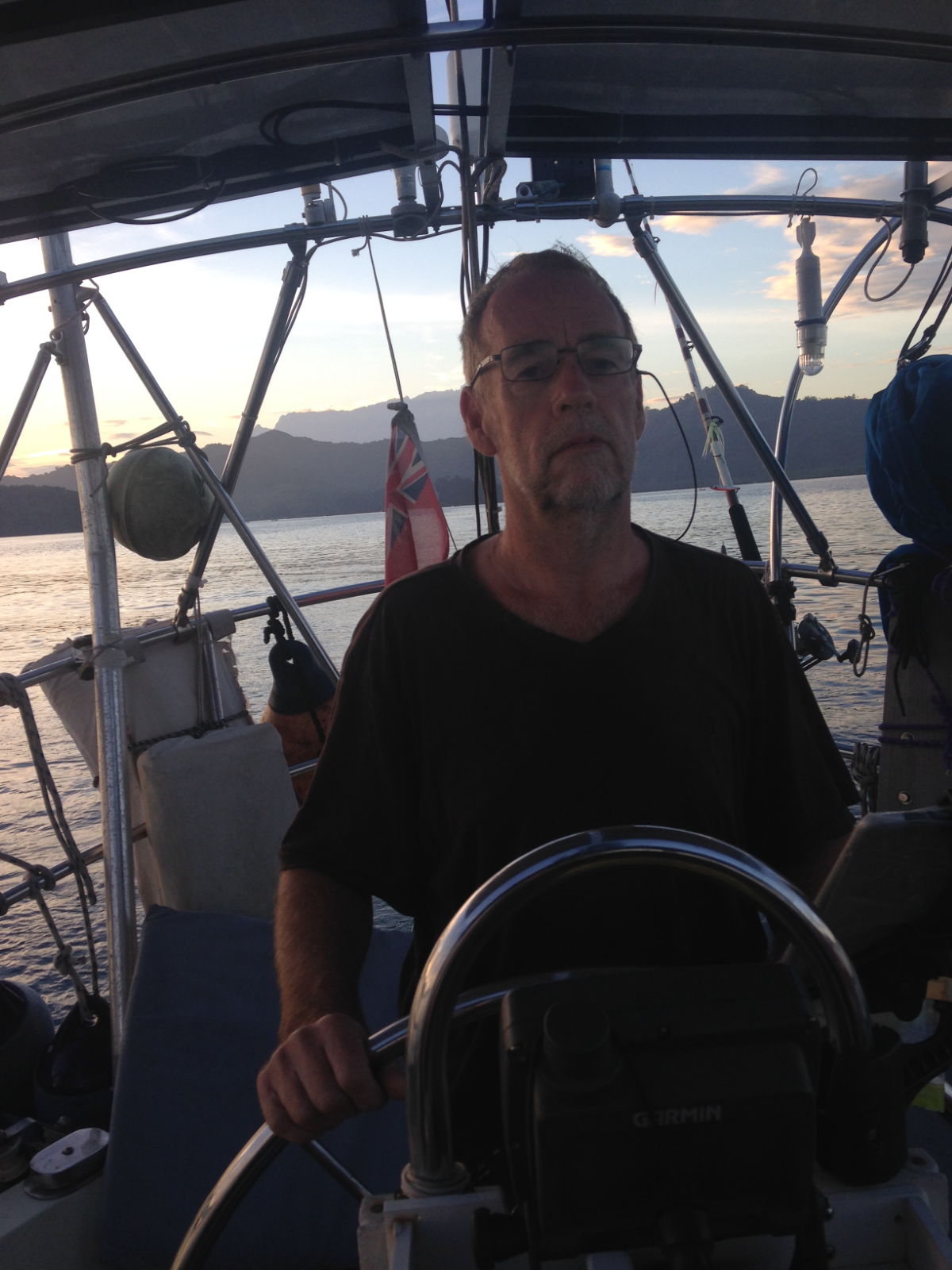
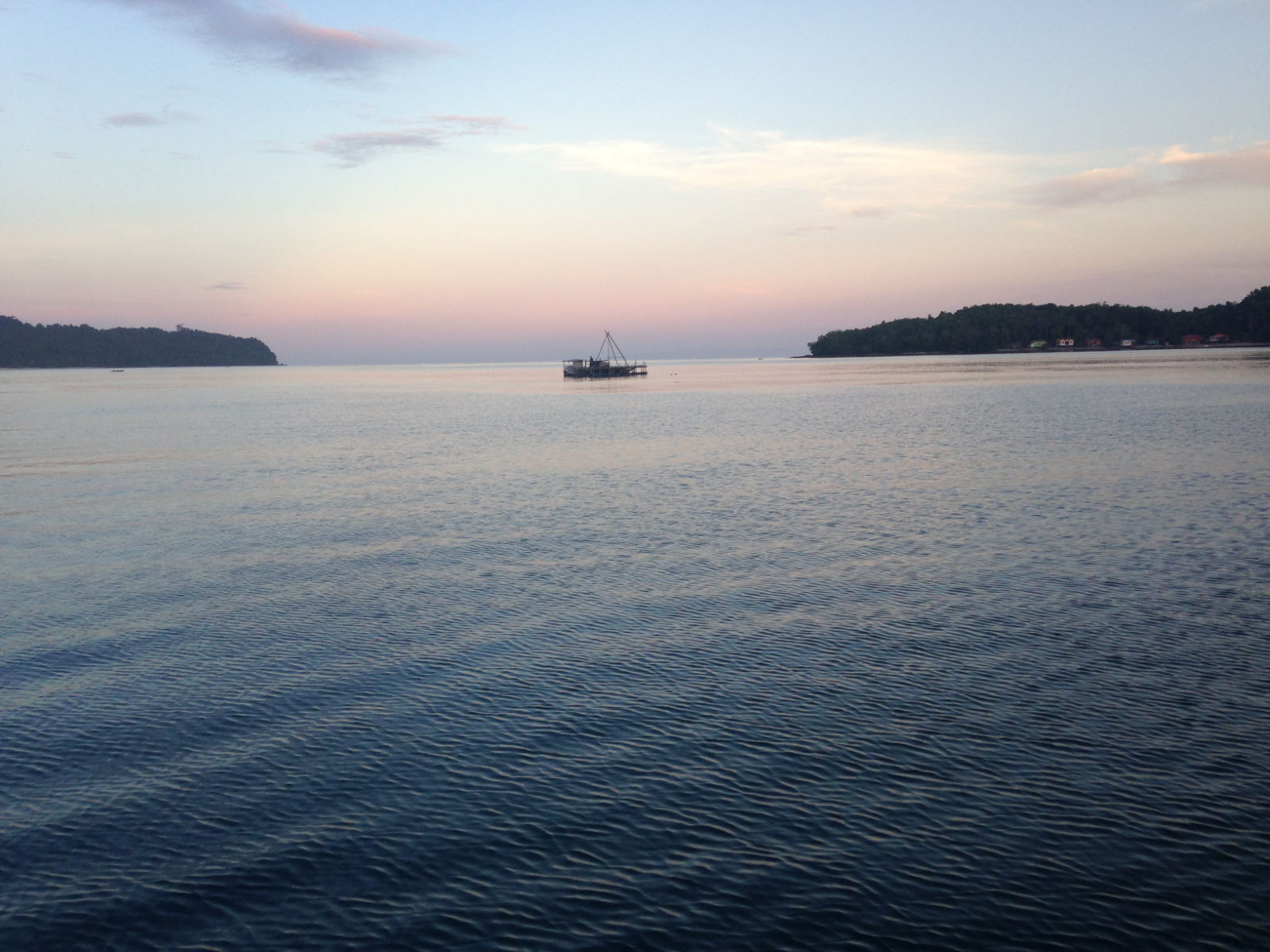
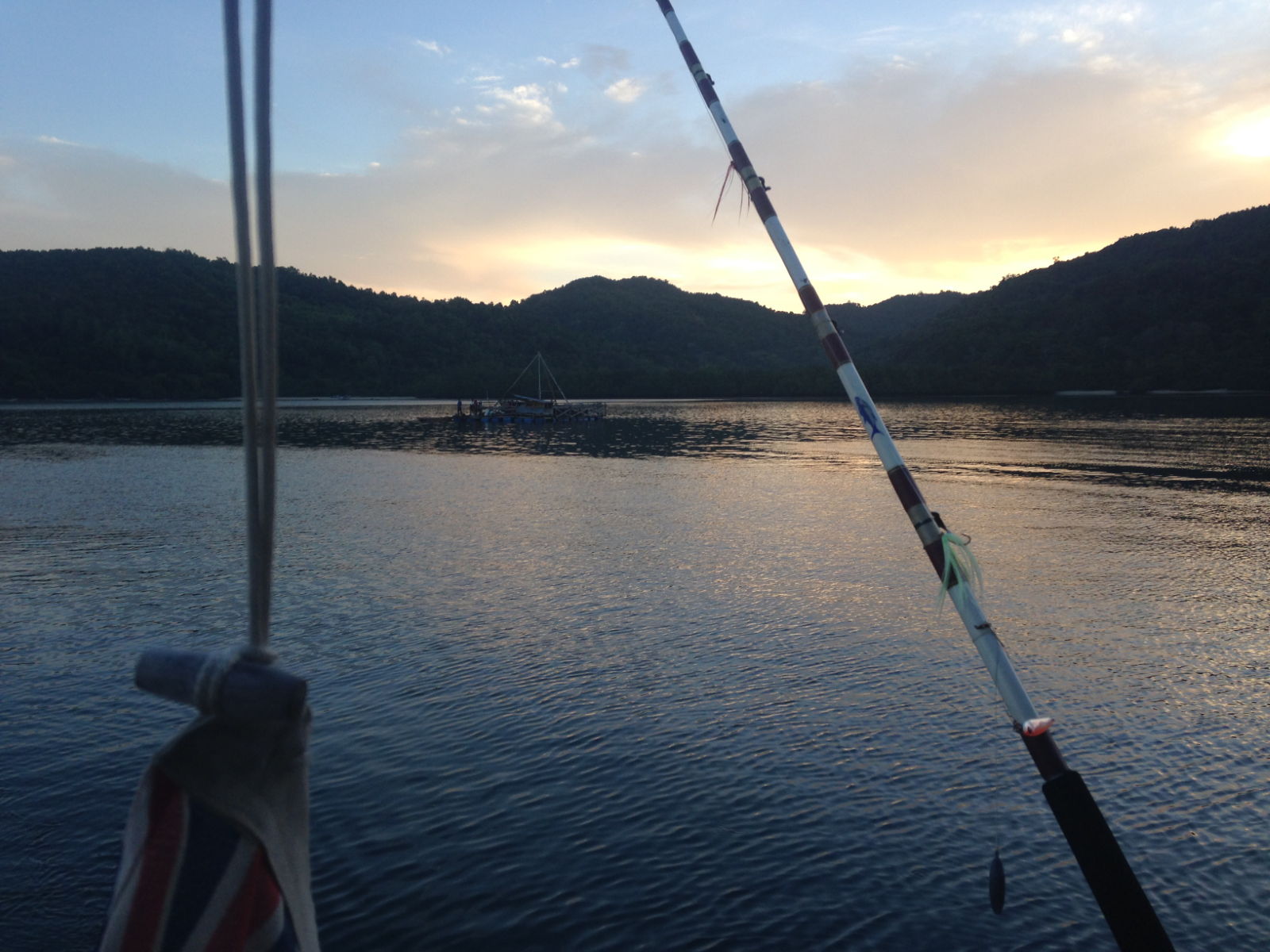
The guys on the FADS waved us off when we left in the morning. Mount Kinabalu looked striking in the early morning sunlight before it faded into the distance behind us. Our destination was Tanjung Kaoua, where Ian and Marilyn were already anchored so we had a chat with them on the VHF before settling down for the night. The spot was pretty but a little bit rolly. This would be our last anchorage for a while. It was to be night passages (and taking turns at four hourly watches) all the way to The Philippines for the next three nights.

Enjoyed that read Kathy, especially the bit about your bedside manner, made me laugh!(think there’s a few who can relate to that)?
Interesting read Kath, loved the pic of the lonely glass of wine. x